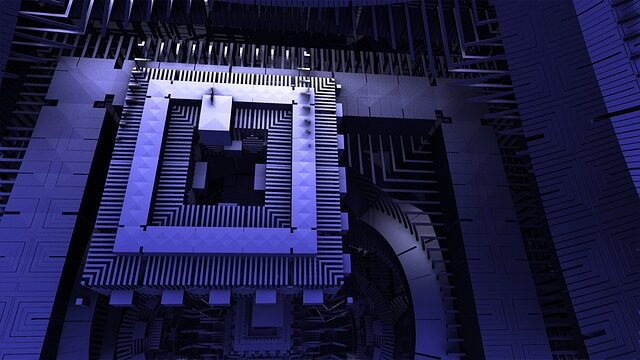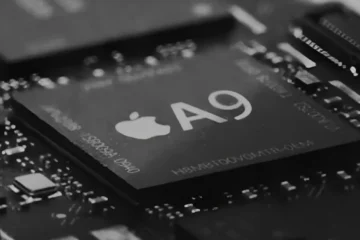What Is Quantum Computer
Quantum computing is a revolutionary new technology that is quickly gaining attention in the tech world. But what is quantum computing exactly, and how does it operate? In this blog post, we will explain what quantum computing is, how it works, and what makes it so powerful. We will also discuss the speed and strength of a quantum computer and how it can be used in various industries.
By the end of this post, you will have a better understanding of quantum computing and how it can be used.
What Is Quantum Computing?
What is quantum computing? Simply put, quantum computing is a form of computing that uses quantum bits. These bits can represent a 0 and a 1 at the same time, which allows quantum computers to process information much faster than traditional computers.
This technology has applications in a variety of areas, such as optimization algorithms. However, there are some key differences between quantum computing and traditional computer systems that you should be aware of if you want to code for or use a quantum computer.
- First, let’s talk about what a qubit is. The basic piece of data in a quantum computer is a qubit. Unlike classical computers where data are represented by binary digits (bits), qubits can represent both 0s and 1s at the same time. This allows for greater potential processing power and flexibility when it comes to using quantum computers.
- Second, vast numbers of qubits are necessary for true quantum computing performance. As of now, most commercial-grade quantum computers have just a few dozen qubits. However, this number could increase exponentially in the future as technology advances. For example, Google has announced plans to build 50 million qubit devices by 2025!
- Third, coding for Quantum Computers requires different approaches compared to those used for traditional computer systems. For example, noise-robust operations need to be taken into account when processing data with Quantum Computers versus classical machines where errors usually propagate slowly throughout the system. Eventually, this could lead to improved artificial intelligence simulations or better encryption schemes using Quantum Computing.
- Finally, although it’s still early days for Quantum Computing, there’s no telling what amazing things we might see in the future thanks to its ability to solve problems far beyond those that are currently possible with classical computing systems.
Quantum computers are a type of computer that utilize quantum mechanics to store and process data. They have the potential to be much faster and more powerful than classical computers, and have the ability to solve certain problems that classical computers cannot.
So, why don’t we have quantum computers yet?
There are a few reasons why quantum computers are not widely available yet.
- First, quantum computers are extremely difficult to build. Quantum mechanics is a very strange and counterintuitive field of physics, and it is difficult to control and manipulate quantum states. This makes it challenging to build reliable quantum computers.
- Second, quantum computers require extremely low temperatures to function properly. Most quantum computers operate at temperatures close to absolute zero (-273.15 degrees Celsius or -459.67 degrees Fahrenheit). This makes them very expensive to build and maintain.
- Third, quantum computers are still in the early stages of development. While there have been many advances in quantum computing in recent years, there is still much research and development that needs to be done before quantum computers are ready for widespread use.
- Finally, there are also some technical challenges that need to be overcome before quantum computers can be used for practical applications. For example, quantum computers are prone to errors due to the inherently unstable nature of quantum states. This means that they require error correction algorithms to function properly.
Overall, while quantum computers have the potential to revolutionize the field of computing, they are still in the early stages of development and there are many challenges that need to be overcome before they become widely available.
Unlocking The Potential Of Quantum Computing Power
Quantum Computing is a relatively new form of computing that is based on the principles of quantum mechanics. This type of computer can solve problems much faster than traditional computers, which makes it extremely powerful. In this blog, we will also explore what Quantum Computer is, how they work, the advantages that they have over traditional computers, and some of the applications that they are currently being used for.
First and Foremost
First and Foremost a Quantum Computer is a computer that uses quantum mechanics to perform calculations. This means that it operates on different rules than normal computers do – specifically, quantum mechanics governs the behavior of subatomic particles such as electrons. As a result, Quantum Computers can solve problems much faster than regular computers can.
Another Advantage
Another advantage of using a Quantum Computer over traditional ones is that Quantum Computers are not susceptible to hacking or data breaches. This is because hackers need to break into your computer to access your data – with a Quantum Computer, all they need to do is access the information stored on the machine itself!
Additionally, because Quantum Computers can handle more data at once than classical computers can, they are better suited for tasks such as financial analysis or scientific research where Processing large amounts of data fast are required.
Now let’s take a look at some of the methods by which you can program a Quantum Computer. There are three main methods: Shor’s algorithm (named after mathematician Michael Shor), Grover’s algorithm (developed by Drs Lawrence Witten and David Deutsch), and exponential time search (ETS).
Each has its advantages and disadvantages – for example, ETS tends to be faster but less secure than either Shor’s or Grover’s algorithms. However, once you’ve learned how to program a quantum computer using one of these methods, you’ll be able to use it for any task that falls within its capabilities!
One application for which quantum computing has already started showing great promise is cryptography – specifically in solving public-key cryptography puzzles such as those used in online banking or SSL certificates.
By exploiting loopholes in these puzzles, hackers have been able to break into people’s online accounts undetected until now. By using quantum computing power instead of brute force attacks on these types of puzzles, businesses could greatly reduce their risk from cyber-attacks.
There are still many challenges that need to be addressed before quantum computing can truly revolutionize the way businesses operate. For example, current implementations suffer from low accuracy rates due to noise correlations caused by thermal fluctuations.
How Does A Quantum Computer Work?
Quantum computers are a new type of computer that is different than classical computers. Classical computers use bits, which are tiny pieces of information that can be either on or off. A bit can represent one letter in the alphabet or one number. Quantum computers, by contrast, use qubits – a unit of quantum information that can represent two or more different types of information simultaneously. This makes quantum computing much faster and more powerful than traditional computing methods.
Below, we’ll give an overview of how a quantum computer works and some of the potential applications of this technology. We’ll also discuss the differences between classical and quantum computing and explain how exponential gains in speed and storage can be achieved using quantum computers.
Finally, we’ll provide an overview of current research in quantum computing architecture and algorithms. So read on to learn more about Quantum Computer!
The Speed And Strength Of A Quantum Computer
Quantum computers are quickly becoming a reality, and they have many incredible potential applications. They’re much faster than regular computers, and they can do things that regular computers can’t. For example, a quantum computer can quickly fracture the molecular structure of a molecule. This is incredibly important for storing information in computers, as it eliminates the need for traditional data storage methods like disks or tapes.
Another advantage of quantum computing is its speed
Another advantage of quantum computing is its speed. While regular computers can only process information at a rate of around 10 million operations per second (mops), a quantum computer can handle tens of millions of operations per second (mops). This means that it can solve problems much more quickly than regular computers.
One potential application for quantum computing is in the field of artificial intelligence (AI). AI is becoming more and more common in our everyday lives, and quantum computing could help to make it even better. Quantum AI can process large amounts of data much faster than traditional AI systems, which could make them better at analyzing complex patterns and understanding complex situations.
Another area where quantum computing could be helpful is in the world of encryption and security. Today’s encryption methods are very strong, but they might not be able to keep up with future advances in quantum computing technology. A universal quantum computer could break many current encryption methods without even trying – something that’s not desirable!
There are also numerous potential applications for Quantum Computing outside of the realms of technology and business – including chemistry, math research, weather prediction, and drug discovery among others! But while these applications are still being developed, we’re excited to see what comes next as we move closer to a future with Quantum Computers!
Conclusion
Quantum computing has the potential to revolutionize the way we think about and use computers. Its speed and power could be used to solve complex problems that are beyond the scope of classical computing.
For example, quantum computing could help us develop new medicines, find better materials for energy storage and production, or even unlock new ways of understanding quantum mechanics itself. If we continue investing in research and development into quantum computing, it could lead to a whole new era of innovation and discovery.



